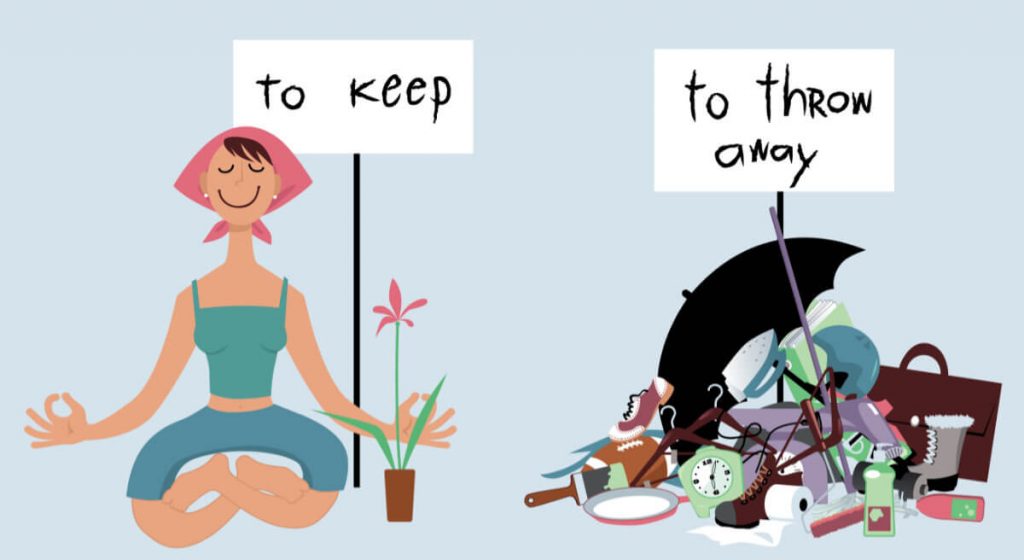Peace amid the Anxiety of Things

The absences that give our faith presence. Seeking a simpler abundance.
The race to fit in creeps up when we least expect it.
A few weeks ago, my four-year-old was participating in a Zoom ballet class. These online classes became part of our regular routine during the Covid-19 pandemic. My daughter always looked forward to them. But on this day, in the middle of her class, she ran into the kitchen on the verge of tears.
“The teacher said we should go get a crown or some fairy wings to wear for the next song,” she told me. “I don’t have a crown, or fairy wings.”
She had several lovely dress-ups, and a couple tutus, but no crowns or fairy wings. And up until this point, my daughter had never felt the lack.
After some frantic searching, I found my daughter a pretty silver headband, and we pretended it was a crown. A smile erupted across her face, and she quickly rejoined her ballet class. The problem was fixed, at least for now.
But I continued to think about her tears in that moment. I recognized her disappointment and frustration in my past (and present) self—in the envy I have felt when other people go on expensive vacations, purchase nice furniture, and the like. In a culture that values acquisition, feelings of exclusion or unimportance can flood us when we try to make do with less. If we compare our lives or possessions to those of the people around us, we invariably become disappointed. Such is the road to resentment.
Consumerism is more than a social and economic system. It’s an edifice of mass habit, an entire worldview that promotes self-centric living, competition, novelty, entertainment, and waste. For a world fixated on consumption, there is no such thing as “enough.” This philosophy teaches us that the earth and its abundance are mere commodities to buy, trade, and discard at will.
“Our culture presents the world as a cosmic supermarket,” Haley Stewart writes in her book The Grace of Enough. “All of God’s creation—even our relationships to other people—is there for us to consume, expendable when it becomes difficult or requires sacrifice. We’re told that happiness is in our grasp if we can only buy enough, acquire enough, achieve enough. Yet in our pursuit for more, we find only a larger and larger void needing to be filled.”
Consumerism also takes a toll on our communities, as it often places the small names and neighbors we know at a disadvantage in our endless race for the cheap and convenient. It can destroy our budgets, financial freedom, stewardship of resources—and our familial wellbeing.
But religious faith prompts us in a different direction. It reveals a spiritual realm beyond the material and urges our lives to be ordered by transcendent moral principles that often require us to set aside our desires for what is right.
Thus, the Bible suggests to us that “Godliness with contentment is great gain.” (1 Timothy 6:6) It’s a paradox—contentment and gain don’t seem to go together. But according to this simple equation, loving God, coupled with gratitude for what He provides, equals plenitude and increase—despite the fact that we have added zero material possessions to our life. Society looks at such an equation and insist the math doesn’t add up. But this formula is an invitation: to peace, to joy, and to a purpose that transcends—indeed conquers—the discontent that rules our “cosmic supermarket.”
Most of us have “standards” we believe necessary for the good life, but they have little to do with virtue, faith, or purpose. There are things we think we cannot live without—whether social media or television, smart phones or trendy clothes. And so we begin a rat race that continues until our death—seeking to keep up with the Joneses, to fit into our social circle, to find the answer to the sentence: “all I really need is x, and then I’ll be happy.”
In J.K. Rowling’s Harry Potter series, the Weasleys are a ragtag bunch who live in a house that seems always on the verge of falling apart. Arthur and Molly Weasley raise their family on one income, and thus their seven children must be content with hand-me-downs and secondhand clothes. Their bank account is nearly empty.
But to the orphaned Harry Potter, this dilapidated house is a place of comfort and solace. As Haley Stewart notes in her book, the Weasley home “is a haven for the marginalized. Forgotten people who have nowhere else to go find a place at their kitchen table. The Weasleys are the unsung, faithful heroes of the Harry Potter series—sacrificing life and limb for the downtrodden, never expecting anything in return for their generosity of mind and spirit. In their material poverty, there is immeasurable spiritual wealth. It stems from their love, gratitude, and mirth—not from their possessions.
Why is it so hard to recreate the happy contentedness of the Weasleys? Perhaps because we rarely take our faith seriously. Consistent with Christian belief, the “chief end of man” is communion with God. Enjoyment of God—praising Him, loving Him—is ultimately the only thing that can make us happy. The “good life” consists of seeing the divine in the world around us, in our own lives, and expressing gratitude and wonder for its presence.
The smallest things—the soft breathing of a baby, the bright flash of a bird’s wing, the smell of bread fresh from the oven—can prompt gratitude and joy. No new couches, sparkly fairy wings, or fancy vacation needed. The quotidian and humdrum of everyday life become “enchanted” when we view them through the eyes of faith.
For over a month now, due to the Covid-19 pandemic, my young daughters and I have barely left home. We’ve gone on walks through the neighborhood, played in the backyard, and dropped off fun care packages with friends. Otherwise, we have been in a strangely empty and quiet season—one which has required us to practice contentment on a whole new level. For several weeks, our internet stopped working, so we dusted off old DVDs and record albums, played endlessly on the swings, and called people on the phone when we couldn’t reach them via Zoom. It seemed as if every day brought a new challenge to contentment. There was no quick fix, no easy answer—and no automatic reprieve for the mind and soul.
We often turn to various forms of novelty to distract, amuse, or comfort ourselves, rather than begin the hard task of cultivating faith. But I believe this season in American life could serve as an immense challenge to our usual consumerist rhythms. Gratitude is a muscle, after all, that requires regular exercise to become strong.
Hard times give us the honesty to see we’re used to having what we want when we want it. But as many families combat scarcity and fear over lost jobs, even these customary pleasures are being called into question. Life is far more uncertain, and it’s far less easy to distract ourselves from its cares. Thus, we all face the challenge of reorienting our minds and hearts toward simpler rhythms of contentment.
Gracy Olmstead is a writer and journalist located outside Washington, D.C. She’s written for The New York Times, The Week, National Review, The American Conservative, The Federalist, and the Washington Times, among others. She is a Christian.
This essay is part of a series called “Finding Faith in the Age of Anxiety.” It explores solutions that faith offers in countering the troubles of our time. Perspectives from various religious traditions are represented.



